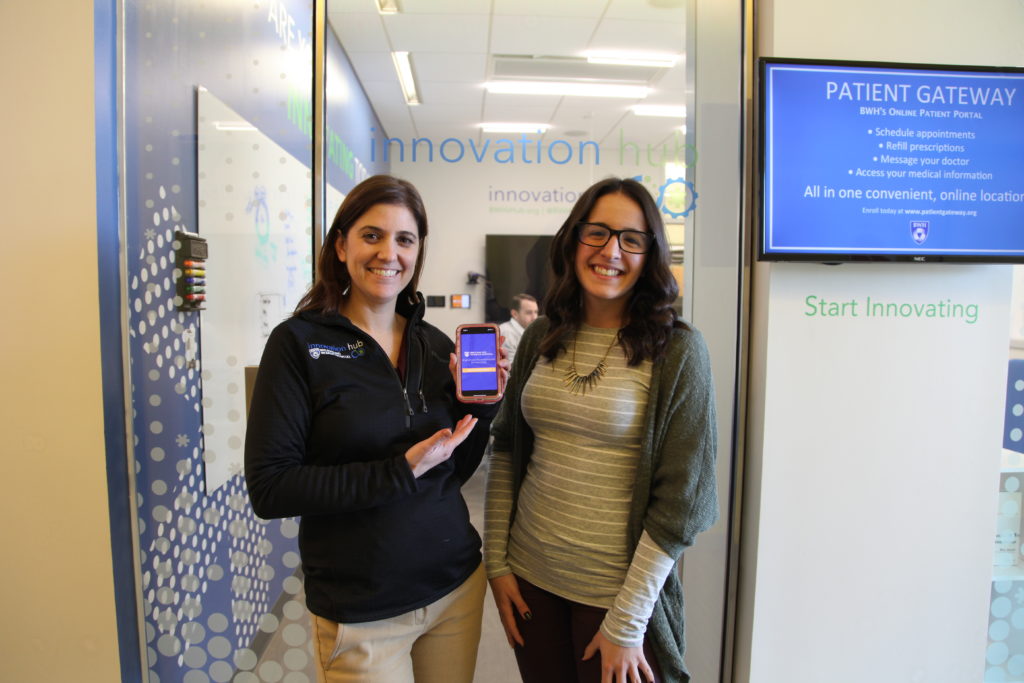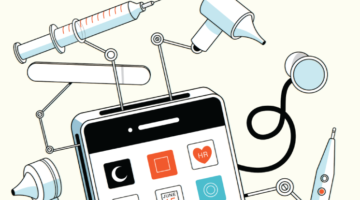
“While opportunities for digital health apps are endless, customizing them too much can drive up cost and even make consumers less likely to use them,” says Brian Mullen, PhD, innovation strategy manager at Brigham Innovation Hub (iHub).
Responding to these challenges, Mullen and his colleagues at iHub developed the Brigham Mobile Research Platform. This suite of mobile app-based protocols has been vetted for data privacy, security, and ease of use so physician-researchers can dream up tools with their patients’ needs in mind without starting from scratch.
“Our job is to connect the BWH community to the right resources to implement digital health projects, whether building their own apps or working with a startup to create one,” says Josie Elias, MBA, MPH, iHub’s program manager for digital health innovation.
After hearing about a mobile app project in the works by urologist Quoc-Dien Trinh, MD, Elias reached out to him to help build it on iHub’s platform. Trinh’s app aims to help men with prostate cancer offset the negative side effects of androgen deprivation therapy (ADT), which slows disease progression by diminishing male hormones that stimulate cancer growth.
“We know that ADT therapy keeps men alive, but it can also complicate their lives by causing serious metabolic problems such as rapid weight gain, diabetes, and cardiovascular disease,” says Trinh. “Fortunately, these problems can be mitigated by increasing exercise and changing diet. We thought if apps can help people meet more general wellness and weight loss goals, why not design one specifically for men on this therapy?”
With the iHub platform ensuring Trinh’s app is maintained and optimized for quality and security, he has been free to focus on what matters more: improving patients’ experience and engagement in their healthcare.
“Asking patients to use an app on their phone to keep track of their habits makes a lot of sense in theory,” says Trinh. “By building one and studying it, we can see if it is a useful and viable tool to encourage men using ADT to be vigilant with their diet and exercise routines.”
Mullen is inspired when clinicians like Trinh can create digital solutions to complement their clinical, teaching, and research work.
“There are so many great ideas, and we can’t say what will work or not—that’s up to the evidence,” he says. “But the passion and determination of our investigators is a great start. That’s why we give them space to test ideas and then let the data determine whether the app or device addresses problems the way we hope they will.”







